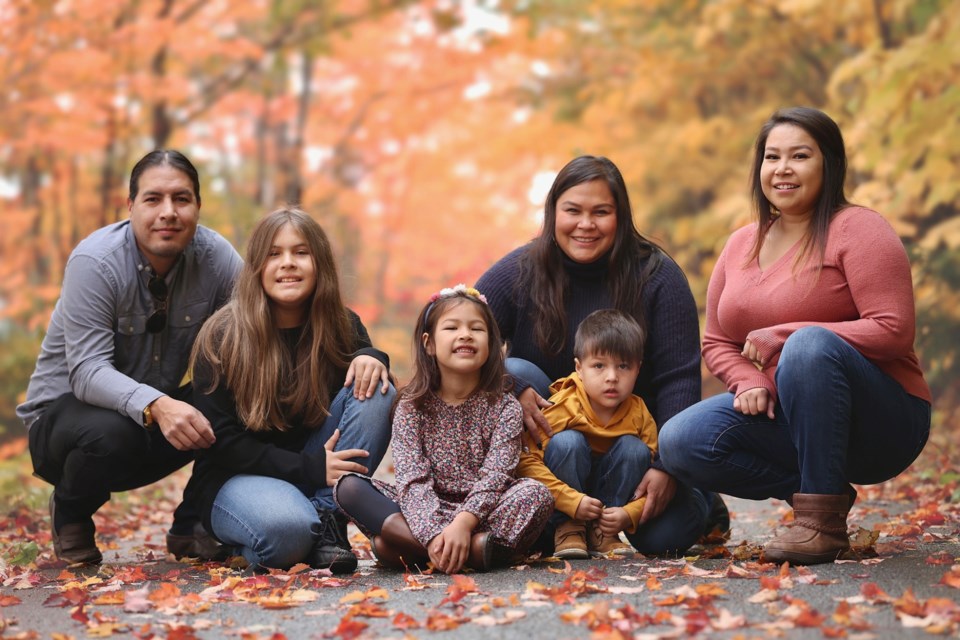Newly elected Mississauga First Nation Chief Brent Niganobe wasn’t exactly paying attention to what would end up being an extremely tight race for chief earlier this week.
Instead, the two-term councillor was making sure that his four children were taken care of while members of his family kept tabs on the Dec. 6 band elections, which saw Niganobe elected as leader of his community by a single vote.
Of the 394 ballots cast in the six-way race for chief, Niganobe had 101 votes — just one more vote than the 100 votes cast for Roger Daybutch, and nearly twice as many votes as former chief Bob Chiblow, who came in fourth with 59 votes.
“I was at home with them while this was all going down, and I didn’t hear anything until much later,” Niganobe told SooToday Friday. “My wife actually told me the results.”
Niganobe’s family is synonymous with politics in Mississauga First Nation: his father, grandfather and great grandfather all served on band council. “I was always surrounded by it growing up,” he said.
His brother, Reg Niganobe, was also chief of Mississauga First Nation prior to stepping down in 2021 in order to assume the role of grand council chief for the Anishinabek Nation, which represents 39 First Nations across Ontario.
“He just wished me luck and told me that he supported me, and he would always be there,” said Niganobe when asked about his high-profile brother. “That’s kind of how he did it — he wasn’t like: 'This is what you’ve got to do.' We’ve always respected each other that way, so he was very kind and wished me well wishes like other family members.”
Niganobe grew up in Mississauga First Nation before leaving for Peterborough, where he graduated from Fleming College with a law and justice degree, and later, a bachelor’s degree in Indigenous studies from Trent University with a minor in sociology.
“I felt like I had a lot to give back to the community, and that’s kind of why I served on council; I just wanted to pay the community back for giving me that opportunity to be educated,” he said.
The first-time chief moved back to Mississauga First Nation with his wife, Giselle, and their four children about seven years ago.
“Working for the First Nation was always my goal,” Niganobe said.
Niganobe would serve two consecutive terms on council beginning in 2017, taking on a variety of portfolios, including governance, economic development and membership, among others. As with the majority of First Nations, councillors routinely have to take on several roles due to a lack of capacity.
“When you’re on council you have to adapt and wear many hats,” he said.
Now the leader of his home community, Niganobe says his most immediate priority is community engagement to determine how the community’s share of compensation from the historic $10-billion Robinson Huron Treaty annuities settlement will be used.
There are also pressing issues at hand when it comes to housing in the community of nearly 400 people. Niganobe says there is overcrowding in some homes where there are several children living with their parents under one roof.
“We don’t get a lot of funding for that,” he said. “The amount of houses that we can develop are not enough to keep up with the ever-growing population, and I know there’s a lot of people waiting for homes.
“I think that’s a main priority that I brought forward and want to address.”
Niganobe is also a proponent of enhanced social programming in the community, especially when it comes to youth.
“When I was growing up we had a lot of programming for youth, but right now, we don’t. We’re lacking that. We don’t even have a hub for them to go. I think that’s always important,” the chief said. “There’s plenty of research out there that shows if you do have youth programming and family programming, you have lower rates of addictions and other factors.”
And while there are three councillors returning to their seats this term, six new faces in all have been elected to sit on council. Niganobe says it will take some time to “get into the swing of things,” with so many departures from council, but is encouraged by the new blood coming in.
That’s what we want, we want change, and newer and younger generations coming in and taking those spots, that’s always the goal,” he said.
But first and foremost, Niganobe has to wrap his head around the very idea of being referred to as chief now.
He credits his wife and children, as well as his upbringing by his parents, for keeping him grounded in that respect. When he’s not at work or tending to parental duties at home, Niganobe can be found in the bush, hunting and fishing with his kids.
“It keeps you humble. To them I’m still dad, and it hasn’t affected my family,” he said. “A lot of people have asked if it’s sunk in, and it hasn’t sunk in for me because I’m still taking care of them and I still have to do those things.”
